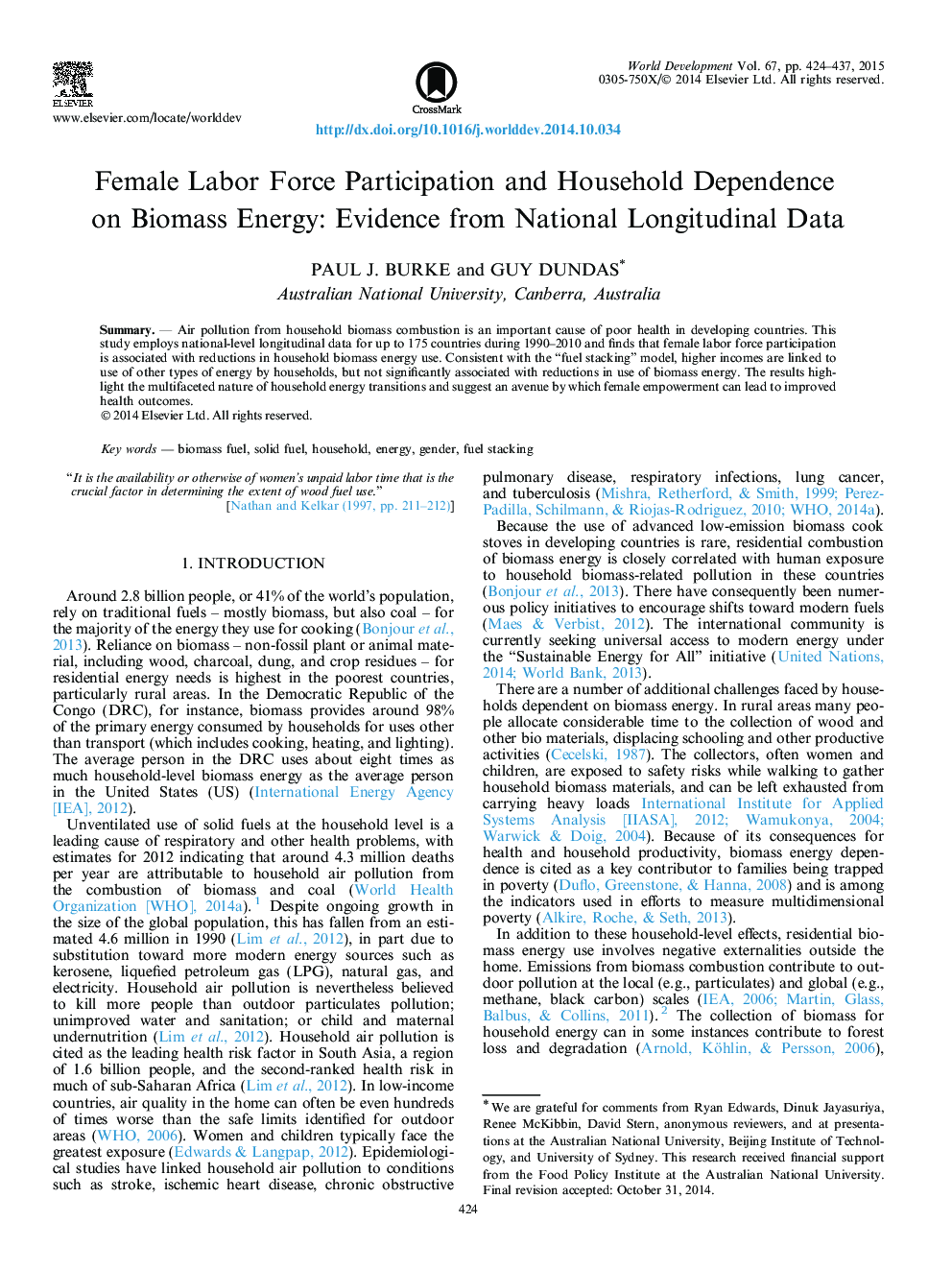| Article ID | Journal | Published Year | Pages | File Type |
|---|---|---|---|---|
| 7394381 | World Development | 2015 | 14 Pages |
Abstract
Air pollution from household biomass combustion is an important cause of poor health in developing countries. This study employs national-level longitudinal data for up to 175 countries during 1990-2010 and finds that female labor force participation is associated with reductions in household biomass energy use. Consistent with the “fuel stacking” model, higher incomes are linked to use of other types of energy by households, but not significantly associated with reductions in use of biomass energy. The results highlight the multifaceted nature of household energy transitions and suggest an avenue by which female empowerment can lead to improved health outcomes.
Related Topics
Social Sciences and Humanities
Economics, Econometrics and Finance
Economics and Econometrics
Authors
Paul J. Burke, Guy Dundas,
